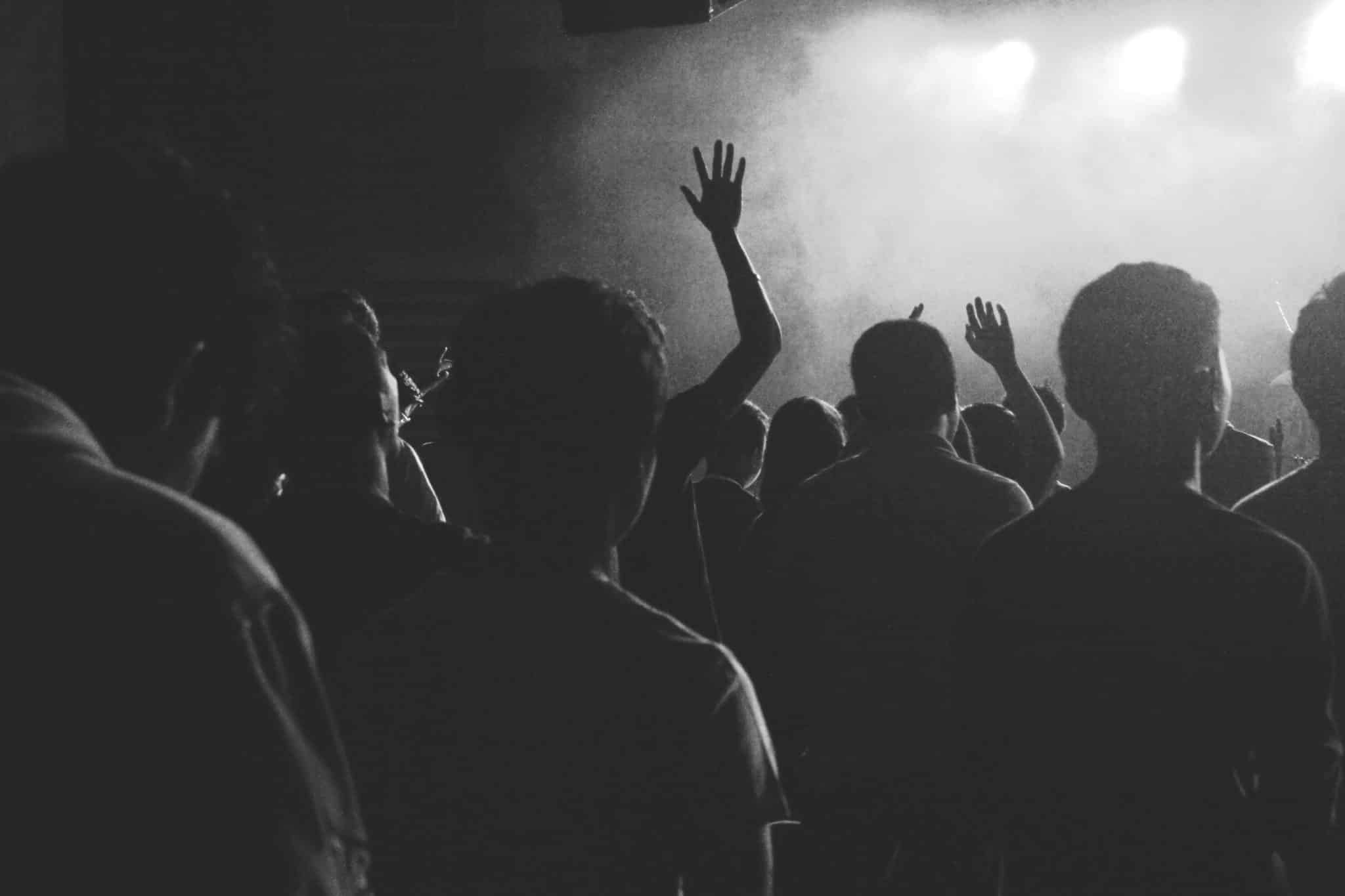God is still at work: How to counter that languishing feeling with spiritual rhythms
by Tan Huey Ying // July 7, 2021, 5:35 pm

"Rhythms, for us as human beings, form the parameters of who we are, even our spontaneity and habits," says Dr Tan Seng Kong, a lecturer on Spiritual Theology at BGST. Photo by David Werbrouck on Unsplash.
Languishing. Despondency. Sian-ness. These are familiar words in a season where the focus of the latest discussion topics shifted from a Covid-19 pandemic to an endemic.
This sense of stagnation and emptiness might be the dominant emotion of 2021, reported the New York Times, which defined it vaguely as “the void between depression and flourishing” or “the absence of well-being”.
Being a Christian does not automatically shield one from feeling such an emotion but, in times like this, does our faith in Jesus and our worldview that includes a Creator God make any difference?
Two theologians shared their thoughts with Salt&Light. Dr Lai Pak Wah, principal of the Bible Graduate School of Theology (BGST) and Dr Tan Seng Kong, director of spiritual formation and a lecturer of systematic and spiritual theology, provide valuable insight into ways to deal with languishing.
What are spiritual rhythms and why do they work?
Dr Lai: The way to tackle this is probably to use theological anthropology, that is, who are we as human beings?
We are basically creatures of order, we need some way of ordering ourselves. Absolute chaos doesn’t work. Even in a Pentecostal worship service, there’s actually there’s a certain sense of order that’s happening.
Rhythms work because we’re creatures of habits.
Dr Tan: At least in my tradition, we’ve been brought up to think that ritual is a bad thing. But we haven’t connected that with the fact that we are creatures of habit.
We have our own unspoken rituals. Altar calls, raising your hands, a particular way of doing worship, that’s also ritualistic, but it’s just not formalised in the order of service, so to speak.
We’ve been brought up to think that ritual is a bad thing. But … we are creatures of habit.
So get rid of the idea that ritual is bad because we are all ritualistic as humans. The very fact that as human beings we give each other presents, we have meals over the table, we say “hi” and “goodbye”, that’s all ritual based.
But we’re not only creatures of habits, we’re also creatures that are spontaneous, right? We are innovative. We learn new things all the time. We start new projects.
When we pray also, we, as evangelicals, we always try to pray from our heart. Spontaneous praying. So I think it’s finding that balance within the structure and the freedom.
Rhythms, for us as human beings, form the parameters of who we are, even our spontaneity and habits.
What’s the point of being intentional about habits?
Dr Lai: Fundamentally, what’s important to realise is that you get “sian” because you lose track of where God is. In Christian tradition, this is known as “acedia”. The monks already experienced this “sian-ness” – no energy for anything.
Dr Tan: It’s an effect of a spiritual state. They (the monks) are saying that there is a deeper issue at the root.
St Ignatius of Loyola talks about finding God in all things. So the question is: Where is Christ right now? Is He in the shadows of my life?
What spiritual disciplines would you recommend?
1. The examen
Dr Lai: I always recommend the examen. It’s very short, only about 10-15 minutes, then you’re done.
It is about being intentional, trying to recognise God has not disappeared. And that He is at work.
It starts with thanksgiving. Thankfulness is the intentional process of recognising God is at work, and so when you know that God is at work, then you can recalibrate your own emotions. It may sound very simple, but actually, there’s a lot of things that are happening.
You sort of mentally survey the last 24 hours that passed. You basically want to have a sense of how God was present in those 24 hours. Were there moments where there was fear or joy?
When you know that God is at work, then you can recalibrate your own emotions.
Observe the feelings “consolation” and “desolation” that lead you to a faithful and loving God, or away from God.
This is training your own experience and emotions to discern: Where is God in the midst of everything?
Did I experience joy when I was making a sale? Why did I feel that joy? How was God present there? Is that joy because I really like this? Or because my talent is fully used and I flourish in this state?
This discernment of God’s presence is not just a mental thing, it is a training of emotions, so you have a taste of where is God in the moment.
And then, also praying for the day ahead, being concrete about it. So that when you do your next examen, you can look back and be thankful for the things you pray for.
I spend about 10 minutes reflecting and five minutes writing very short notes: “TQ” (Thank You), “CD” (Consolation-Desolation) and “RP” (Repentance Prayer).
It is something we can do on the road as well. It has to be short to be effective. If it’s too long, nobody will do it.
2. Silence and Sabbath
Dr Tan: I am not able to concentrate on the MRT. So for the examen, I have it at home. I need a quiet space in a similar way. There are also guides that you can use, mobile apps with different versions.
”When you pray, pray. But when you eat chicken, eat chicken.”
But I would also think of silence. Incorporating silence into prayer so that prayer doesn’t just become a “thing” you do among the many others.
How do we incorporate it? Maybe at the start of your quiet time or at the end or in the middle?
It is one half of prayer where we listen to God, rather than speaking. There are many ways to listen to God through Scripture, but God also speaks in silence. There’s a paradox there, but it’s something that we can find throughout the Bible. Silence from Genesis all the way to Revelation; and it is something that Jesus did as well.
And then of course, weekly. A day of the week, which you can call Sabbath, or taking a rest. It is learning how to stop and do something else.
Are there other habits that help?
Dr Lai: Get a hobby. One with a psychosomatic property, whether it’s playing an instrument or making bouquets of flowers – those break the monotony of work. And then forcing yourself to stick to that regime, even though you haven’t finished your work, is also important.
Washing the dishes might be a chore, but if we have the intention to, it can also be turned into a spiritual discipline.
Because if you work too much, you get into despair. But if you have pockets of downtime, leisure time, you can look forward to actually resetting and recalibrating.
Dr Tan: I do a bit of gardening, something that I picked up later in life. That helps me. The fact that you handle soil – it’s somatic.
One of our teachers, Gordon Smith, says, as folks who teach and think a lot, we are always stuck in our minds. So every Sunday, he gets on his tractor and he goes farming, shifting to manual labour. So, I suppose, washing the dishes and all that might be a chore, but if we have the intention to, it can also be turned into a spiritual discipline.
It reminds me of St Teresa of Avila (a nun from the Middle Ages who was famous for her devotion to God) who said: ”When you pray, pray. But when you eat chicken, eat chicken.”
(The story goes that some nuns were surprised when they came across St Teresa in the kitchen eating a roast chicken heartily.)
Are there boundaries? When does a spiritual discipline become a superstitious practice?
Dr Lai: In matters of spirituality, it shouldn’t stop at natural ends.
There are some things that Christians do share with other religions, but it’s perfectly fine because they are all tapping on who we are as human beings.
Well, when you pray, or engage in any spiritual discipline, you learn to love God more.
We have no monopoly over being quiet, for example. But the goals of being quiet – “I’m quiet because of …” – are different.
Well, when you pray, or engage in any spiritual discipline, you learn to love God more. That should be our end goal. So anything that leads you astray from this is wrong.
But, in that sense, it’s contextual.
For example, we cultivate mindfulness because it has a psychological effect. It helps us to be present in the moment and not to be worried about our past or future. But if we stop at that, then it doesn’t lead us to a spiritual end, so to speak, which is to be receptive to God, receptive to Christ.
Then it’s still good, but it’s not the truth, it is not the full usage of it, which is always to draw us to the Creator.
Love God, love others. That’s the basic goal.
RELATED STORIES:
“If God doesn’t heal, then what?” A question Pastor Philip Lyn grappled with
We are an independent, non-profit organisation that relies on the generosity of our readers, such as yourself, to continue serving the kingdom. Every dollar donated goes directly back into our editorial coverage.
Would you consider partnering with us in our kingdom work by supporting us financially, either as a one-off donation, or a recurring pledge?
Support Salt&Light



